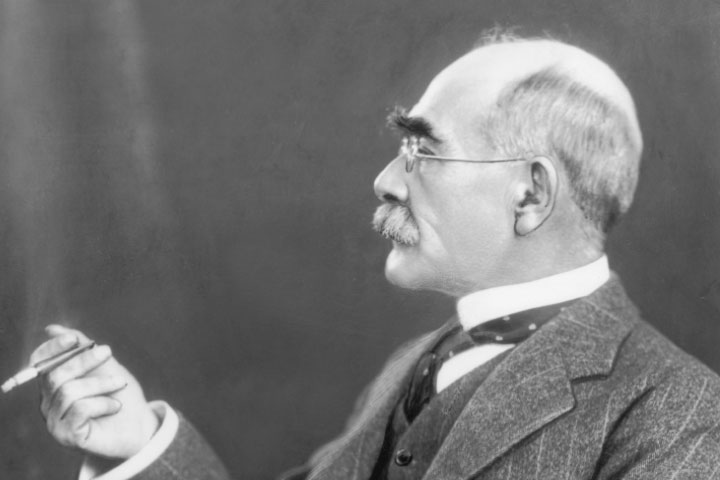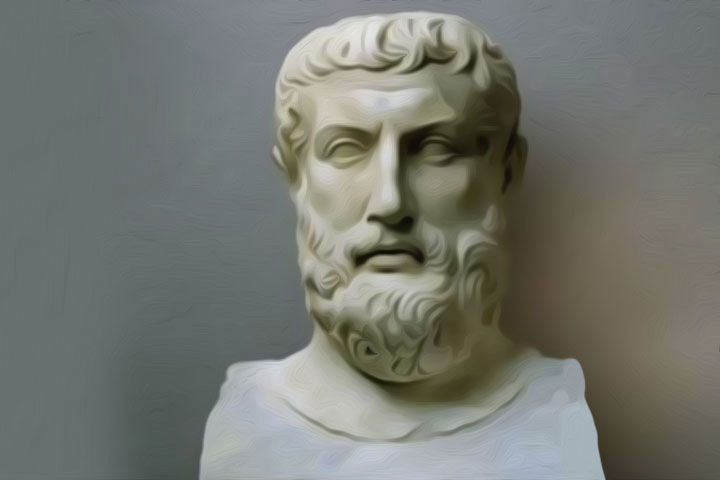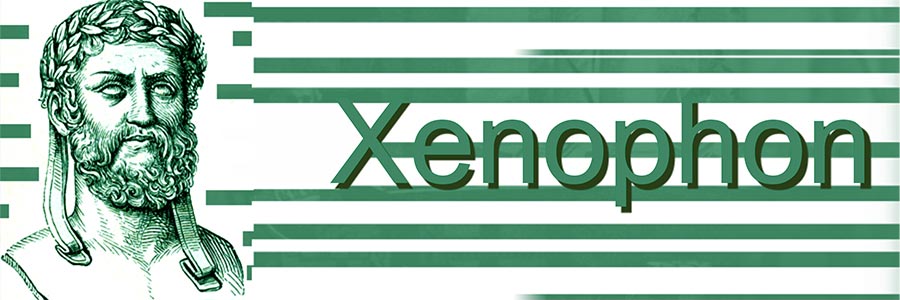

“Excess of grief for the dead is madness. For it is an injury to the living and the dead cannot know it,” said Xenophon, one of the brilliant students of the great master Socrates. The context in which Xenophon made this comment is unknown but as historians claim, it aptly depicts the thinker as avaricious and expedient- the very dispositions Socrates abhorred.
Albeit from Athenian aristocratic lineage, Xenophon was considered an abomination by his contemporaries, aristocrats and commoners for betraying his native land and worse- abetting its archenemy. Yet, Xenophon’s idiosyncrasies did not prevent him from carving a niche by authoring three works that specifically deal with psychology. Paradoxically, one among these is a treatise on the characteristics desired of a military commander while two concern animal psychology.
The books on animal psychology are perhaps the first and the oldest known such works while the treatise about qualities of a military leader is the only of its kind that emerges from ancient Greece, though several others penned by Asian psychologists are extant.

Xenophon was born in Athens in 430BC and was the son of an aristocrat, Gryllus. Details about his mother are not known, but as was customary to ancient Greece, thinkers, aristocrats and other eminent persons who violated local mores were reviled and their records and works, destroyed. Hence, it is not considered surprising there are no extant details of Xenophon.

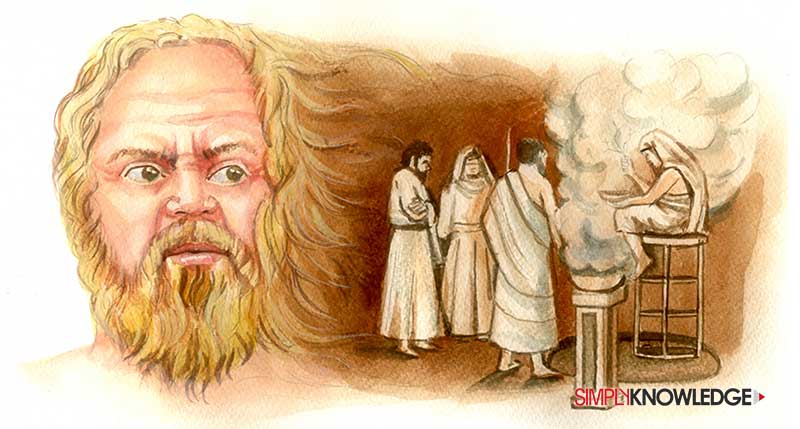
“The sweetest of all sounds is praise,” Xenophon had once said. Paradoxically though, Xenophon’s mien did little to endear him and earn praise. It is known that Xenophon studied under Socrates and was present during the master’s execution. His predilection towards the Socratic school of thought was somewhat anomalous: For reasons unknown, Xenophon would rush for divine advice to the Oracle of Delphi and claim he was following her divine commands. Socrates and his other students loathed Xenophon for this odious behaviour because Socrates had scant respect for religion and spirituality, let alone humans, since he believed they were all bereft of true knowledge. Indeed, records state, Socrates rebuked Xenophon often for his uncanny fetish for the Oracle.

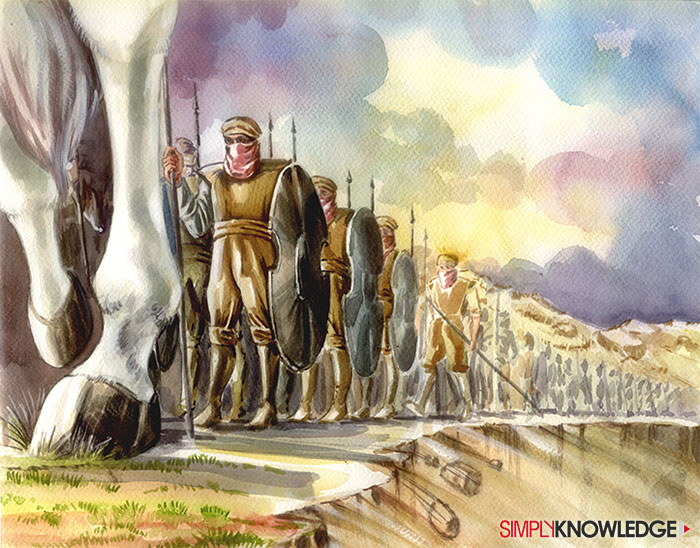
In 401BC or two years after Socrates’ execution, Xenophon deviated from his earlier passion for the school of thought. He was introduced to Prince Cyrus of Persia by a mutual friend and accompanied the Persian army on a conquest against arch-enemy, Athens, in flagrant violation of all acceptable norms of patriotism. Prince Cyrus was killed in the battle of Cunaxa and Xenophon assumed perfunctory leadership of the army, which he effectively led to safety.
Exiled by Athens for his act of sedition, Xenophon brazenly sought refuge in Sparta. He once again participated in a military campaign by the Spartans to Asia. Penniless during this conquest due to strict Spartan military rules, Xenophon allegedly plundered and pillaged the house of a wealthy Persian named Asidates. In his own words, Xenophon vividly depicts this audacious act, saying he robbed Asidates of his wife, daughters and sons as well as wealth for self enrichment. The account, penned by Xenophon himself, aptly sculpts him as an unscrupulous person.
Having stuffed his own coffers during the conquests, Xenophon returned to Sparta and married a local woman named Philesia. The couple bore several children, whose names and genders are not recorded.

Xenophon spent several years in Sparta, actively involving himself with local politics, earning him further disdain in Athens. He reportedly lived there for some 20 years. Though Athenians later pardoned Xenophon for his acts of sedition against the republic-state, ambiguity persists over his return to his native land, since extant records state his children studied in Sparta.

Xenophon, according to unverifiable reports, died a disgruntled man, living in exile outside Athens. Historians claim he passed away in or around 355BC. His death went largely unnoticed by other contemporary thinkers of the time, since he was considered a pariah among the largely patriotic and erudite Athenian community. Some viewed him as a disgrace to Socrates and his teachings.

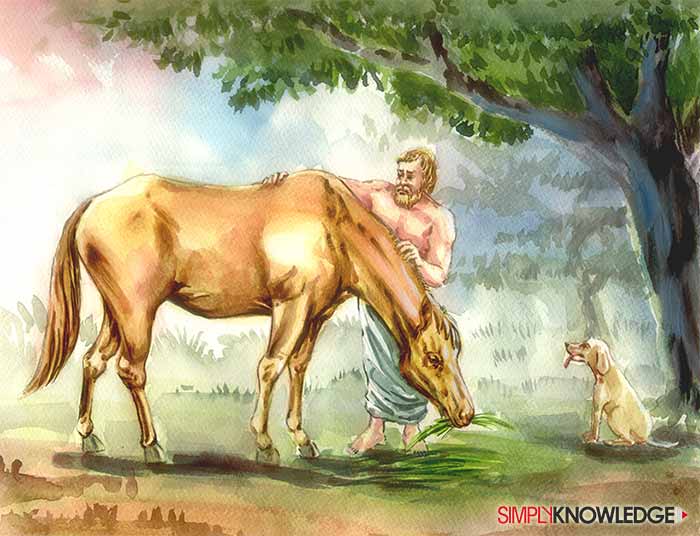
Historians, following an extensive study of Xenophon’s works, discount them as figments of imagination based on Socratic teachings. Only three of his texts are said to be worthy of any mention. The ‘De Re Equestri’- a treatise on buying, training and tending to horses and ‘Cynegeticus’ about training and breeding pedigree dogs are considered as the first known written records based on animal psychology. “For what the horse does under compulsion, as Simon also observes, is done without understanding; and there is no beauty in it either, any more than if one should whip and spur a dancer,” says Xenophon in ‘De Re Equestri’.
Historians aver, Xenophon may have authored these during or after his military expeditions to Asia and other parts of ancient Europe with the Persians and later, the Spartans, since horses and dogs were extensively used by ancient militaries for various purposes.
The only book by Xenophon that is considered worth some mention is ‘Hipparchicus’ – a treatise on the qualities and duties that are vital for any military commander, though the Orientals, especially the Chinese and Indians had compiled such books long before. The ‘Hipparchicus’ is considered as a unique insight into the workings of the Persian and Spartan militaries since it compares the two and draws distinctions. Inadvertently, the book also exposes the intrinsic chinks in the Spartan and Persian armour, which was of great strategic importance to the Athenians in their later victories against these archenemies. “There is small risk a general will be regarded with contempt by those he leads, if, whatever he may have to preach, he shows himself best able to perform,” said Xenophon while discussing a military leader’s qualities.

Since most Socratic works were penned zealously by Plato, historians and thinkers paid little heed to the ‘Memorabilia’ a four volume commentary about Socrates written by Xenophon. Plato’s works were considered definitive while studying the life and teachings of Socrates.
Since the 18th century AD however, some scholars found, Xenophon’s ‘Memorabilia’ contained some hitherto unrecorded aspects of Socrates’ life, such as his belief in gods and his definitions of the divine power. However, like his other texts, historians and psychologists believe these records could be embellished and use them only to correlate between Socratic teachings and Platonic writings.
Xenophon, writing about Socrates’ contempt for laws noted: “Wherever magistrates were appointed from among those who complied with the injunctions of the laws, Socrates considered the government to be an aristocracy.” Indeed, a bizarre observation of a great master by an aberrant pupil.
Next Biography









